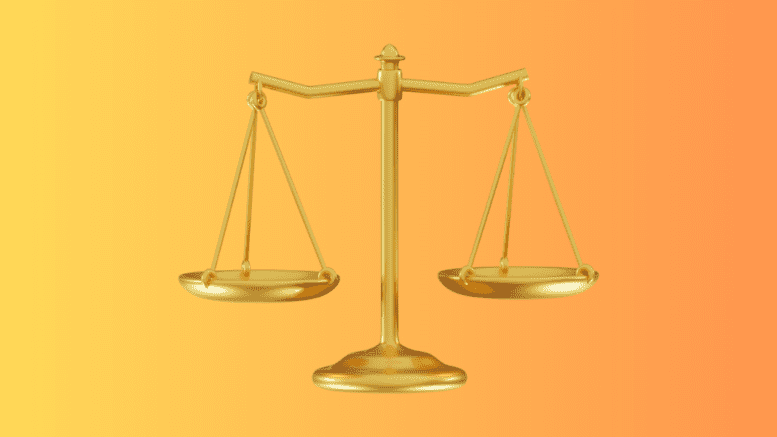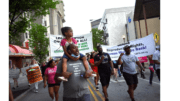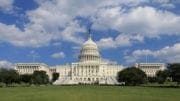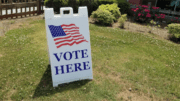by Jay Bookman, Georgia Recorder
February 22, 2024
In emotional court testimony last week, Fulton County District Attorney Fani Willis recounted the racist vandalism and repeated threats of violence that targeted her in the wake of Donald Trump’s indictment, attacks that drove her and her family out of their South Fulton home.
In that same proceeding, former Gov. Roy Barnes explained that he had turned down a request from Willis to serve as special prosecutor in the Trump case, explaining that he did not want to expose himself to the death threats that would certainly have come his way.
“I told DA Willis that I lived with bodyguards for four years and I didn’t like it, and I wasn’t going to live with bodyguards for the rest of my life,” Barnes testified.
These have become sadly familiar stories. Like Willis, Secretary of State Brad Raffensperger and his family were forced by threats of violence from Trump supporters to leave their home, as were Fulton election workers Ruby Freeman and Shaye Moss, falsely accused of election fraud. And it’s not just Georgia. All around the country, the rising threat of political violence has made it much more difficult to recruit part-time and volunteer election workers, as people understandably shrink from exposing themselves to such danger.
Literally, such threats are making it difficult for democracy to function.
In a recent report on “60 Minutes,” a former Wisconsin state GOP chairman told Anderson Cooper that he had agreed to sign documents as a fake elector for Trump, even though he knew there had been no fraud in the Wisconsin election and that Joe Biden had won the state legitimately, because he feared for his safety and that of his family,
“Can you imagine the repercussions on myself, my family, if it was me, Andrew Hitt, who prevented Donald Trump from winning Wisconsin?” he told Cooper.
“You’re saying you were scared?” Cooper asked.
“Absolutely,” Hitt answered.
“Scared of Trump supporters in your state?”
“It was not a safe time,” Hitt said. “If my lawyer’s right, and the only reason that Trump loses Wisconsin is because of me, I would be scared to death.”
Political violence comes in several forms, from anonymous phone threats to riots to full-fledged insurrections. Trump supporters try to minimize the Jan. 6 attack on the Capitol, for example, by comparing it to riots in the wake of George Floyd’s murder by a police officer.
Nobody should justify riots. A riot is dangerous, destructive of property and sometimes lives, but it is spontaneous violence, violence born of a flash of anger.
Organized violence, violence planned and committed to achieve a specific political goal, is something else entirely; it is violence with a purpose. The difference between a riot and organized violence is the difference between a fistfight and premeditated murder.
(And let’s be clear: organized violence committed to achieve a specific political goal is exactly what we witnessed on Jan. 6.)
Violence and the threat of violence have become distorting influences on our public life, and it’s important to try to understand what’s underlies it. Somehow, like that gallows built on the Capitol lawn during the insurrection, a permission structure for political violence has been constructed in this country and to dismantle it before it destroys us we need to understand how it works.
That permission structure has three main components:
1. In ordinary times, politics is a means of peacefully mediating disagreements between competing parties, but the system functions only when all parties are willing to accept that sometimes you win, sometimes you lose. But what happens when you grossly exaggerate the stakes, when you convince people that ordinary disputes over policy and goals are not ordinary at all, but are actually some final battle between the forces of good and evil? By creating a sense of desperation, you make people less willing to lose peacefully and more willing to consider violence.
2.) To create fertile ground for violence, you also have to convince your target audience that the political system as it exists is rigged against them to such an extent that winning is not possible, that losing is inevitable. Once someone comes to believe that losing is intolerable and that losing is also guaranteed, violence can come to seem the only option left to them.
3.) In such times, where can we find the voices of calm, the voices willing to say that the election system is not rigged, that your fellow Americans are not your biggest enemy? To the degree they exist on the internet they are drowned out by the voices of anger and hate. Such voices also don’t get much TV time because they don’t draw eyeballs. And within today’s Republican Party, anyone willing to defend the system by saying that the elections aren’t rigged, that insurrectionists are not patriots, that political violence must be punished, risks cancellation as a RINO or even worse.
In a normal political environment, the one sanctuary where you might hope to find such calming voices would be in our nation’s churches and religious institutions, but in too many cases the pulpit has become a place to stoke anger and frustration rather than assuage it. Indeed, some American “Christian” leaders have begun to take on the tone and rhetoric that we saw in the rise of Islamic extremism. “That’s not true Islam,” we were told at the time by Islamic moderates, and they were right. But this is not true Christianity either.
The best way to dismantle the permission structure for political violence is to attack it at its foundation. There is absolutely no evidence that the elections are rigged. The FBI is not the muscle behind some liberal Deep State. We have far greater enemies in the world than each other. Political violence is never acceptable. Losing an election cycle is not the end of the world, because unless we lose faith in democracy another cycle is coming.
These are not partisan statements, although the fact that many will see them as partisan is a measure of the danger we face. If community leaders, religious leaders, media figures and political leaders are not brave enough to state such obvious truths, they forfeit their right to lead you.
Because once you discredit elections and the institutions of democracy, once they are no longer viewed as trustworthy, then violence becomes the alternative means by which decisions are made. And there are people in this country who are all too comfortable with that notion.
Georgia Recorder is part of States Newsroom, a nonprofit news network supported by grants and a coalition of donors as a 501c(3) public charity. Georgia Recorder maintains editorial independence. Contact Editor John McCosh for questions: info@georgiarecorder.com. Follow Georgia Recorder on Facebook and Twitter.





